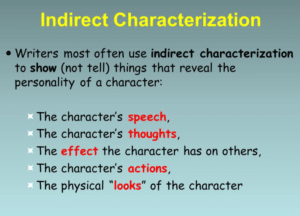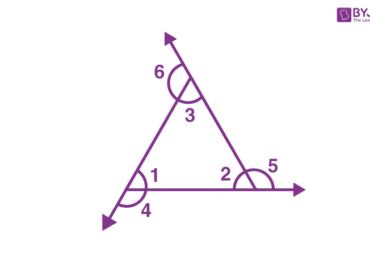A Subject Complement is the part of a sentence that follows linking verbs and provides additional information about the subject. They’re usually adjectives or nouns and can significantly enhance the meaning of your statements.
You might think that grammar is a dry, complex subject, but honestly, it is not that complex. Understanding grammar like subject complements can make the language more vibrant and precise.
So, how do they work? What are their types? And most importantly, how can you master their use?
Stick around, as we’re about to explore the functions of subject complements in a fairly understandable manner.
What Is a Subject Complement?
Let’s dive into understanding what a subject complement is – it’s a word or phrase that follows a linking verb and provides vital details about the subject, either by describing it or identifying it. Picture it as the missing puzzle piece that completes the picture of your subject.
In the sentence ‘John is a doctor,’ for example, ‘doctor’ serves as the subject complement. It tells us more about John, the subject, completing our understanding of who he is. It’s a noun acting as the complement, identifying John’s profession.
Similarly, consider ‘The flowers are beautiful.’ Here, ‘beautiful’ is your subject complement. It’s an adjective, describing the subject, ‘flowers’. This complement gives us more information about the flowers, adding depth to our understanding of them.
The Role of Linking Verbs
Understanding the role of linking verbs in a sentence is crucial for identifying subject complements, as these verbs, such as ‘to be,’ ‘to seem,’ and ‘to become,’ act as connectors between the subject and its complement. Linking verbs establish a relationship between the subject of the sentence and its complement, often providing essential information about the subject.
Think of the linking verb as a bridge. It creates a link that allows the subject complement to follow, shedding more light on the subject. For instance, in the sentence ‘My sister is intelligent,’ ‘is’ is the linking verb that connects ‘My sister’ to ‘intelligent,’ its subject complement.
Recognizing a linking verb isn’t always straightforward, but it’s a skill you can hone. One crucial tip is that linking verbs express states of being or conditions, rather than actions. So, if the verb indicates an action, it’s probably not a linking verb.
The role of linking verbs becomes even more significant when dealing with predicate nominatives, which are subject complements that rename or re-identify the subject. But remember, it’s the linking verb that makes all this possible. It’s the linchpin that holds the sentence together.
Types of Subject Complements
When it comes to subject complements, there are several types you should know, including noun phrases, adjective phrases, adverb phrases, and prepositional phrases. Understanding these different types enhances your grasp of the complement definition and helps you identify them in sentences.
Noun phrases as subject complements often involve object pronouns. A sentence like “He knew it was us” uses ‘us’, an object pronoun, as a noun phrase subject complement.
Adjective phrases add a description to the subject. Consider the sentence “That rice tastes quite sweet.” Here, ‘quite sweet’ is an adjective phrase that describes the subject, ‘rice’.
To clarify these types, consider this table:
| Type | Example Sentence | Subject Complement |
| Noun Phrase | He knew it was us. | us |
| Adjective Phrase | That rice tastes quite sweet. | quite sweet |
| Prepositional Phrase | It still smells of paint in here. | of paint |
These are just a few types of subject complements. As you continue to explore this topic, you’ll encounter more ways these phrases and words can enrich and clarify sentence structures.
Using Nouns as Complements
You can use nouns as complements to rename or re-identify the subject in a sentence, adding depth and clarity to the subject’s identity or characteristics. This process involves utilizing a noun as a complement that acts as the subject’s equivalent. The use of a noun in this way provides a more detailed image of the subject, enabling you to express more complex ideas.
For instance, in the sentence ‘John is a teacher’, ‘teacher’ is a noun acting as a subject complement. It redefines or renames the subject, ‘John’. Similarly, in ‘My dog is a hero’, ‘hero’ identifies the subject, ‘my dog’, in a new light. Whether you’re using common nouns, proper nouns, or pronouns, they can all function as complements.
Making use of a noun as a subject complement isn’t just about renaming the subject, but it’s also about adding more substance to the subject’s characteristics. It breathes life into your sentences, making them more interesting and engaging. So, next time you’re crafting a sentence, remember to consider the power of the noun as a complement.
Using Adjectives as Complements
Just as nouns can provide depth to your sentences, adjectives also have their unique role as subject complements. An adjective that functions as a subject complement describes the subject following a linking verb. These adjectives offer more insight into the subject’s characteristics, appearance, or state, allowing for a much richer and more descriptive sentence.
Consider these points:
- Adjectives as subject complements can transform a dull sentence into one that’s vivid and engaging.
- When you use adjectives as a complement in a sentence, you’re adding layers of meaning.
- Common linking verbs used with adjectives include ‘seem,’ ‘appear,’ and ‘become.’
- Words like ‘happy,’ ‘tall,’ ‘beautiful,’ or ‘smart’ can serve as adjectives in the complement role.
- Remember, the adjective that serves as the subject complement always describes the subject.
Using Pronouns in the Complement Role
In the realm of sentence construction, using pronouns as subject complements plays a pivotal role in identifying or describing the subject, particularly with linking verbs. You’ll often find object pronouns like ‘me,’ ‘him,’ and ‘us’ fulfilling this complement role. For instance, consider the sentence, ‘It was him who broke the vase.’ Here, ‘him’ acts as a subject complement, providing more information about the subject ‘it’.
However, it’s not just object pronouns that can play a part. Subject pronouns can also step into the complement role, especially in more formal contexts. An example of this would be, ‘It was we who won the game’.
Using the correct pronoun in the complement role isn’t just about formality or informality it’s also about sentence accuracy. If you’re not careful, you might end up with sentences that confuse rather than clarify. So, please take note: whether it’s a subject or object pronoun, the aim is to use it to describe or identify the subject in a sentence.
Mastering the use of pronouns in the complement role can significantly enhance your sentence construction skills.
Common Mistakes to Avoid
While mastering the use of pronouns in the complement role can make your sentence construction skills shine, it’s equally important to note some common errors to avoid. As you navigate your way through using subject complements, it’s crucial to remember that these grammar components aren’t just about linking verbs and adjectives, but also about proper usage and positioning of pronouns and objects.
Here are some common mistakes to avoid:
- Using adverbs instead of adjectives or nouns as subject complements. Remember, after linking verbs like ‘to be,’ it’s more appropriate to use adjectives or nouns.
- Misusing subject pronouns in subject complements. It’s not about using object pronouns; the correct ones are subject pronouns.
- Confusing subject complements with objects. Keep in mind, that complements describe the subject, while objects are the receiver of the action.
- Choosing wrongly between ‘It is I’ and ‘It is me’. It’s about tradition and common usage.
- Forgetting that subject complements are essential for conveying complete thoughts and providing more details about the subject.
Identifying Complements in Sentences
To enhance your grasp of sentence structure, you need to master identifying subject complements. These elements are crucial as they provide additional information about the subject of your sentences. By understanding how to spot them, you’ll be able to create more detailed and precise statements.
A subject complement can be a noun, pronoun, or adjective describing the subject. It’s typically placed after a linking verb in the predicate of a sentence. These verbs include ‘am,’ ‘is,’ ‘are,’ ‘was,’ ‘were,’ and ‘become.’ They serve as a bridge connecting the subject to the subject complement.
For instance, in the sentence ‘This is Bella,’ ‘Bella’ is the subject complement. It gives more information about the subject ‘This.’ Similarly, in ‘Barbara is a teacher,’ ‘teacher’ is the subject complement, providing additional info about ‘Barbara.’ It’s the same for ‘The food smells great,’ where ‘great’ is the adjective describing the subject ‘food.’
Practice Exercises
Now that you’ve got the hang of identifying subject complements in sentences, let’s put that knowledge to the test with some practice exercises. Remember, a subject complement is either a predicate nominative or a predicate adjective that follows a linking verb, providing additional information about the subject.
Consider the following sentences:
- ‘She became a doctor.’
- ‘The sky looks gloomy.’
- ‘His suggestion is brilliant.’
- ‘They are musicians.’
- ‘I am tired.’
In these examples, can you identify the subject, linking verb, and subject complement?
In the first sentence, ‘She’ is the subject, ‘became’ is the linking verb, and ‘a doctor’ is the predicate nominative. Repeat this process for the remaining sentences.
Understanding the role of subject complements in sentence construction is crucial. It’s not just about labeling parts of a sentence. It’s about understanding how those parts work together to convey meaning. So, keep practicing until you’re comfortable with identifying the verb, subject complement, linking verb, predicate nominative, and predicate adjective in any sentence.
Additional Resources
If you’re eager to delve deeper into the topic of subject complements, there are numerous educational resources available online that can enhance your understanding. These resources cover all aspects of the subject, from the basic definition of what a complement is a word or words that complete the meaning of sentences to the different types of subject complements.
Websites like Grammarly or Khan Academy offer extensive lessons on this topic. They provide clear explanations of how a subject complement works in a sentence, often following a linking verb. You can find further clarification on the two main types of subject complements: predicate nominatives and predicate adjectives. Also, interactive exercises are usually available to help you apply what you’ve learned.
Online forums like StackExchange can be a goldmine too. You can pose your questions and get answers from experts or other learners. Moreover, there are countless YouTube tutorials where educators break down this concept with real-world examples.
Frequently Asked Questions
What Are the 3 Types of Subject Complement?
You’re asking about the three types of subject complements. These are predicate nominatives, predicate adjectives, and predicate pronouns. For instance, in “She is a teacher,” “a teacher” is a predicate nominative.
What Are 5 Examples of Subject Verb Complement?
You’re asking for examples of subject verb complements. Here are five: 1) “They are happy.” 2) “The sky is blue.” 3) “He became a doctor.” 4) “I am tired.” 5) “You’re a good friend.”
What Is Complement and Its Types With Examples?
You’re asking about complements and their types. Complements are words that provide extra details in a sentence. Types include object and subject complements. For example, in “He makes her happy,” “happy” is an object complement.
What Is an Example of a Subject Complement Concord?
You’re asking for an example of subject complement concord. Consider the sentence, “You are a writer.” Here, ‘you’ is the subject, ‘are’ is the linking verb, and ‘writer’ is the subject complement, all in agreement.
Conclusion
Well, that’s a wrap on our grammar adventure into the world of subject complements! Now you’re armed to the teeth with knowledge about these sentence enhancers.
Don’t forget, they’re the secret sauce adding flavor to your sentences, making them more informative and vivid.
So, go ahead, and let your sentences shine with noun or adjective complements. Remember, practice makes perfect, so keep flexing those grammar muscles!








